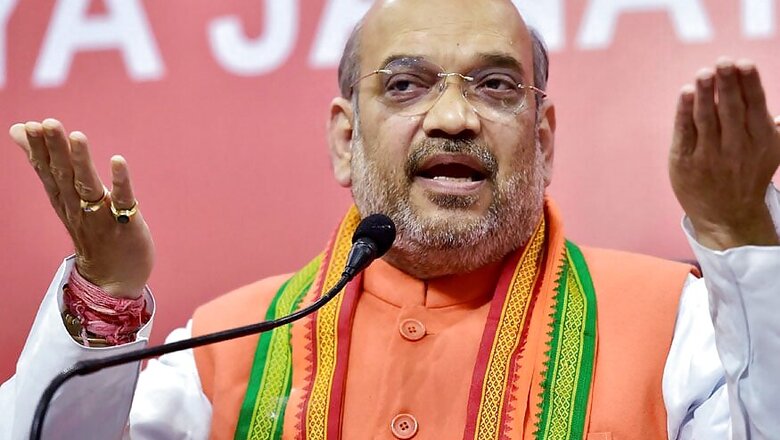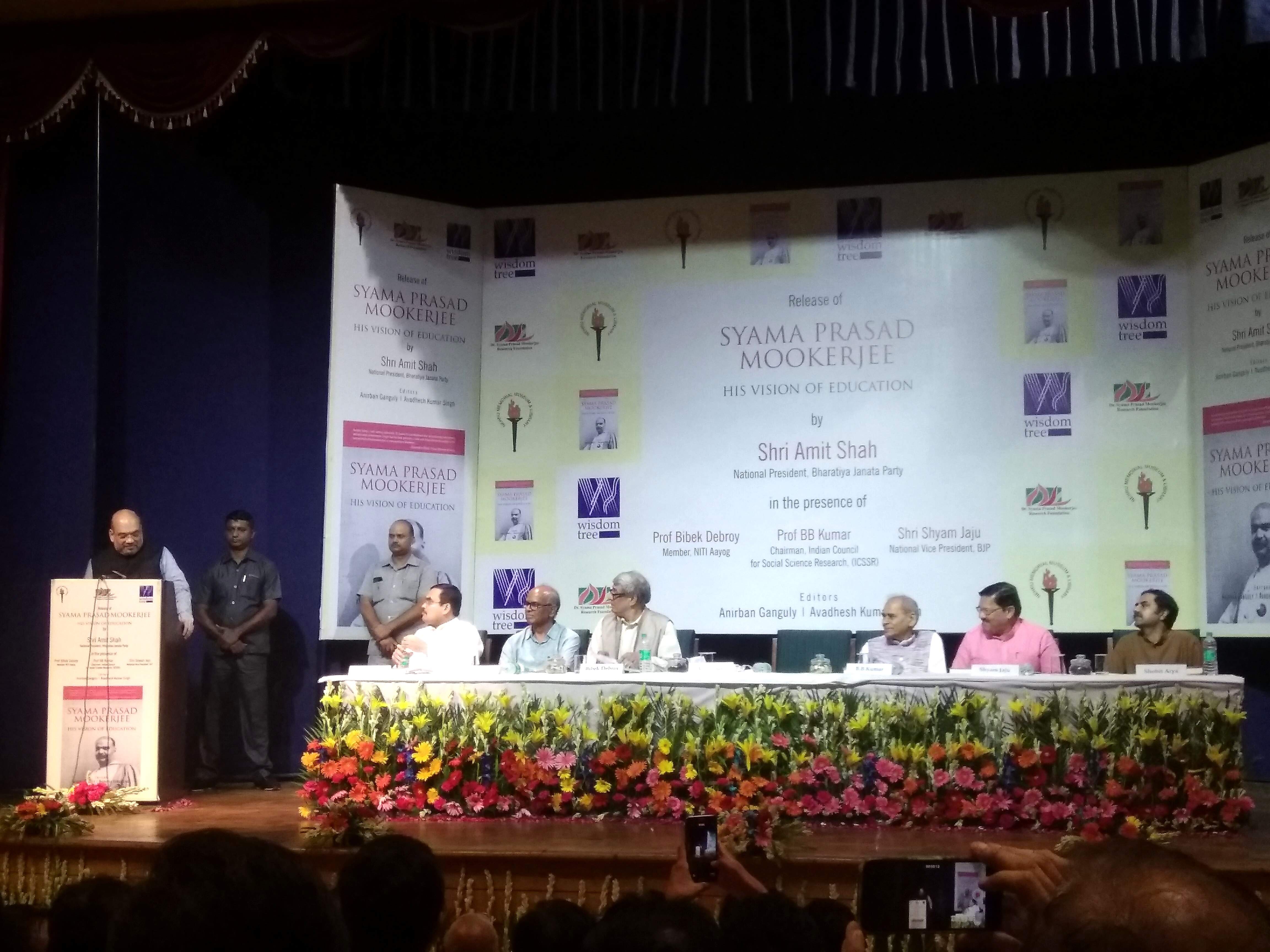
views
New Delhi: In the main auditorium of the Nehru Memorial Museum and Library, a life-size portrait of Jawaharlal Nehru stands witness to many a seminars and academic discussions.
On Saturday evening, the stage was, interestingly, set to remember Jan Sangh founder and Nehru critic Dr Syama Prasad Mookerjee.
BJP president Amit Shah, who was chief guest at the launch of a book on Mookerjee’s vision of education, credited Mookerjee with “stopping the Islamikaran of Bengal before Independence and said it was due to his efforts that India retained Bengal during Partition.

Other speakers at the event included NITI Ayog member Professor Bibek Debroy, Indian Council for Social Science Research chairman BB Kumar and BJP national vice-president Shyam Jaju. (Eram Agha/News18.com)
“If you see the population of old Bengal, it was in no way a Hindu-dominated land. He (Mookerjee) stood against the rules that allowed the partition of Bengal, and as a result Bengal did not become part of then East Pakistan, now Bangladesh,” he said.
“In 1940, a bill was introduced in Bengal Vidhan Sabha, which aimed at Islamikaran of education…. It was stopped due to Mookerjee’s intervention and protests,” he added.
Shah also took on the Congress, saying the Partition should not have been religion-based. “When Labour Party came to power, the Congress accepted the partition of India. Why?” questioned Shah, adding, "Partition should not have happened on the grounds of religion but still Congress went ahead with it."
Calling Mookerjee a “visionary”, Shah said an organisation he had founded has crores of members today.
“Why did he lay down the foundation of Jan Sangh? At the time, there was no corruption and the Congress had not forgotten Gandhi. Still he started an organisation like Jana Sangh because he was a doordarshi (visionary)…. Mookerjee started this party with just 10 people and today there are 11 crore members in the BJP,” said Shah.
At the time, the political situation was such that Jana Sangh would have never got majority, Shah said. “Forget at the national level, it wouldn’t have been in power even in local bodies. The ‘yes’ votes were deposited in Congress account and Nehru’s popularity was at its peak,” Shah said.
The BJP chief said Mookerjee’s contribution to education had not been highlighted, calling it a “grave injustice done by history as well as history writers.” The Jan Sangh founder did not believe in “compartmentalisation and commercialisation” of education, Shah said.
Other speakers at the event included NITI Ayog member Professor Bibek Debroy, Indian Council for Social Science Research chairman BB Kumar and BJP national vice-president Shyam Jaju. The book is a compilation of 29 speeches by Mookerjee and has been edited by Anirban Ganguly and Avadhesh Kumar Singh.
Remembering Mookerjee, Debroy said that with him as Vice Chancellor, the University of Calcutta had invited Rabindranath Tagore for the convocation which was conducted in Bengali for the first time. BB Kumar lamented that the role of people like Moorkerjee in India’s history had been forgotten.




















Comments
0 comment